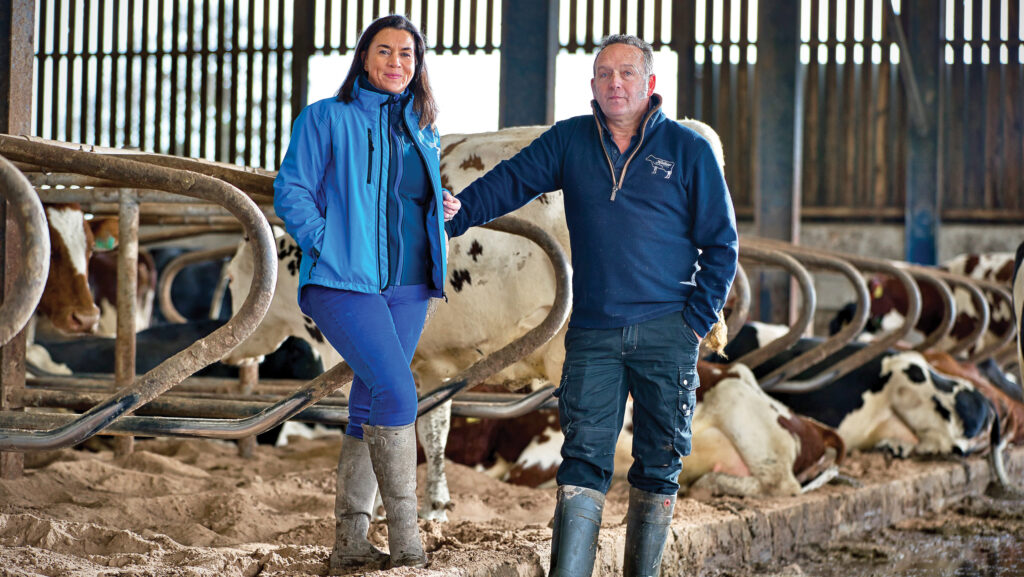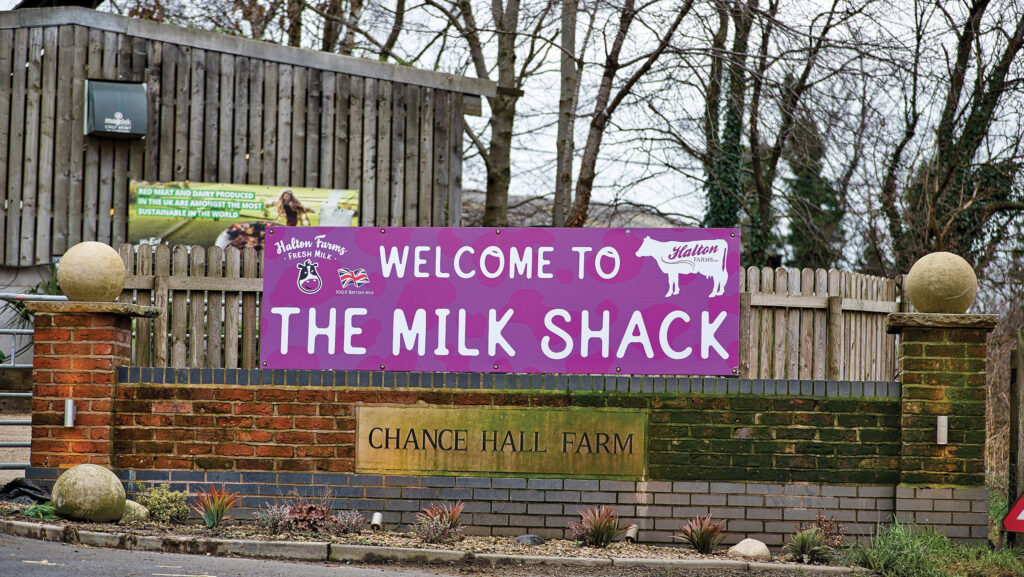Transition Farmers quit dairy after tenancy bombshell
 Karen and Tom Halton © Richard Stanton
Karen and Tom Halton © Richard Stanton On the very day that the Haltons paid the half-yearly rent due on their four tenancies, a letter arrived from the landlord’s agent advising them that one of the agreements would not be renewed at the end of this year.
“We were really shocked, it completely took us by surprise,” says Karen.
For 20 years, she and Tom had built up cow numbers, seizing multiple opportunities they were offered to rent land, infrastructure and staff accommodation on the same estate near Congleton, Cheshire.
See also: All updates on Halton Farms as a Transition Farm
Their four tenancies cover 500 acres and include two farmhouses and a cottage.
The news delivered in March 2025 that one of the farm business tenancies (FBTs) would not be renewed when it expired – an agreement for 80 acres, a worker’s cottage and a herdsman’s home – was a bolt from the blue.
Farm facts
Halton Farm, Congleton, Cheshire
- Farm size: 240ha tenanted
- Annual rainfall:1,000mm
- Soil type: Clay loams
Non-negotiable
Two months down the line, as the Haltons entered a scheduled meeting with the agent to discuss this, they were anticipating a scenario where they would renegotiate the tenancy, perhaps pay a higher rent, and it would then be renewed.
The outcome was very different – in fact much worse than the news conveyed in the agent’s first letter.
“We sat there to be told it was absolutely non-negotiable, that there was absolutely no way we could keep the tenancy, and that at Christmas 2025 we would be given notice on the farm where we have our heifer rearing unit and on another 200 acres,” Karen recalls.
It would only leave them with their main holding, Chance Hall Farm, as the tenancy on that runs until 2037.
What followed was a week of decision-making, weighing up their options – should they pursue other tenancies to maintain herd size, scale back by halving cow numbers, which their remaining land base would allow, or cash in?
Exiting the business
“Did we want to go forward and farm half the business and half the cows? We decided we didn’t. We are the type of people who like to push on, to grow things,” says Karen.
In a year when they both turn 56, they settled on the third option – to walk away from the day-to-day business of dairy farming as Halton Farms Ltd.
“We don’t have any succession [their son, Jack, opted for a different career] and the landlord doesn’t want to work with us, which makes it really tricky because there isn’t even a chance of having a chat around the table,” Karen explains.
“At our age did we want to get into another tenancy or by doing that would we just be blocking a young person from being able to get into the industry?”
While some business owners might not want to exit when they are at the top of their game, for the Haltons it made sense.
“This is a business and we have to remember that. In business, you put everything into it to make it profitable, grow it to a position that when you want to cash in, you can do so at a high.
“This is our pension, everything we have got is tied up in this business.
“We have worked hard, we have invested, we have built up a business and now is the right time to step back because it is worth the most it has ever been. Why would we not cash in?”
Selling up
And that is what they have done, selling 454 milkers, 157 maiden heifers, 88 in-calf and recently served heifers and 53 heifer calves over two days in September.
The breeding and management they had invested in those ProCross animals was rewarded with exceptional sale prices achieved.
“The sale was a difficult day, to sell our amazing girls is the hardest thing we have ever done on our dairy farming journey,” Karen admits.
“They achieved one of the highest grossing sales on record, which has left us immensely proud, but it is very bittersweet as we loved them so much.
“However, we have to remember that we have now given other people the opportunity to work with them and breed from them – they have gone all over the country and will hopefully help to set up other family farming business and careers.”
The Haltons have known difficult times – when their milk price was slashed by 8p/litre during the pandemic was among the toughest – and admit it has been “a rocky old ride over the years”.
But as Karen points out: “We have always worked through it, always come back on top.”
They are retaining the Chance Hall Farm tenancy, a farm where they have established their direct milk sales business, The Milk Shack, and will produce milk from a small number of cows to maintain that enterprise.
This will be run by a manager and some of the staff will remain, freeing the Haltons up to focus on other business activities, including in the property sector.

© Richard Stanton
Property development
Karen says the TV programme Grand Designs, which documents ambitious self-build projects, is her favourite.
She and Tom have experience in this area, when they renovated a house as their potential home to retire to from farming.
“We enjoyed that, we had a great team of people around us, and Tom is great at procurement,” says Karen.
“We will look at doing up another property, another development, and will also have the time to catch up on holidays we haven’t had, and take the time to see friends.”
Farming is her third career as she worked in other jobs before joining Tom on the farm, but for him it has been his life for 40 years, four decades when he has never experienced “that Sunday night feeling”.
His father came to the estate in 1968 and Tom has lived there all his life, originally farming in partnership with his father, their landlord and the landlord’s son.
In 2012, the partnership was split and Tom and Karen created Halton Farms Ltd. The best farming decision in Tom’s career was to switch the herd to cross-breeding 20 years ago.
The ProCross cows – a three-way Holstein, Swedish Red and Montbéliard cross – had a daily milk yield average of 38 litres at 4.2% butterfat and 3.5% protein, were achieving an average pregnancy rate of 38%, and had exceptional foot health.
“Those cows will perform in any system,” Tom maintains.
Taking control
As the Haltons look forward to their next chapter, recent experience has taught them the importance of taking control of when to exit a business.
“It was us who made the decision to leave as the business could still have functioned as a smaller one, the decision hasn’t been made for us,” Karen points out.
And her advice to other farmers on planning their own exits?
“Do it when you want to do it, not when you are forced to, and most of all make the decision and follow it through. We were nearly forced to, not through choice or decisions of our own.”
